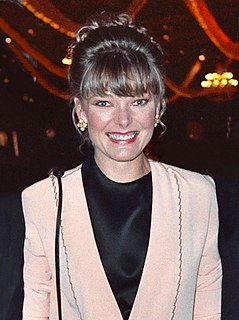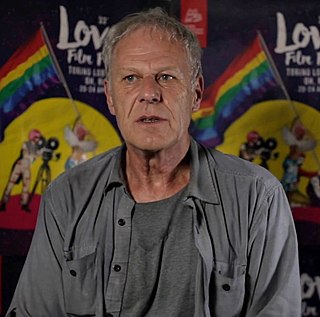A Quote by Richard Linklater
You make a film and you can't really pick the way it's put to the public. You control the content, but the way it's marketed, or the poster, or what they're telling the public about the film, it's beyond you. Some people don't even see them, because they think they already know it. That can be frustrating, when something you've done is marketed in a way you think is antithetical to what it is.
Related Quotes
All I've learned is that you need the studio system sometimes, if your budget is a certain size, and other films you can do independently. When I think of a studio, I generally think of distribution. Since I'm a director, I have a similar creative experience on every film I do, because I can control that. But then it's a different film, I think, as it reaches the public, depending on the way it's marketed. I don't know. I haven't learned much of anything. Sometimes you need them, sometimes you don't. Sometimes they want you, most of the time they don't.
Sometimes the theme of the film is something that comes down to the way you designed the film - that you're saying something about the world. And it's one of the things that I think animation can do, in a way that other forms of filmmaking can't do. Because every single thing you see has got to be designed and created.
People tend to think of gentrification in terms of race because it's presented that way, and I think it's presented that way because in poor cities that's what's really going on. Beyond that, I think it's presented that way as a way for the people who are really pushing it to make it just a black problem, so people don't care.
I really don't want to produce artwork that does not have meaning beyond simple decorative values. I want to use public space to create a public voice, and a public consciousness about the presence of people who are, in fact, the majority of the population but who are not represented in any visual way. By telling their stories we are giving voice to the voiceless and visualizing the whole of the American story.
Definitely my generation and beyond grew up in theaters and when you make a film you think of the theatrical experience. You think of that big screen in the darkened theater with a lot of people, so that's always the thought behind it. If that's the case, it's nice if that's available. That's great, but I don't really mind if they're watching films on a plane. I don't mind. Anybody who just wants to watch a movie, I can't complain. If that's the way they're going to watch them, that's the way they watch them. Who am I to judge?
The public has moved beyond politicians. For example, I'm not worried about them repealing protections for the LGBT community, because the public is beyond that. I'm not worried about them being able to change the way in which we have reached out and provided many more opportunities for women. And I - but here's what does concern me. What concerns me is that they will make some judgments in the foreign policy area, without having thought it through that may cause a lot of problems.
I think, unfortunately, everything is becoming about comfort, you know? A comfortable way to tell a story. The comfortable way, so that the audience will never be lost. A comfortable way to produce a film with green screens or without a lot of physical effort or losing control because of the weather or physical locations.



































